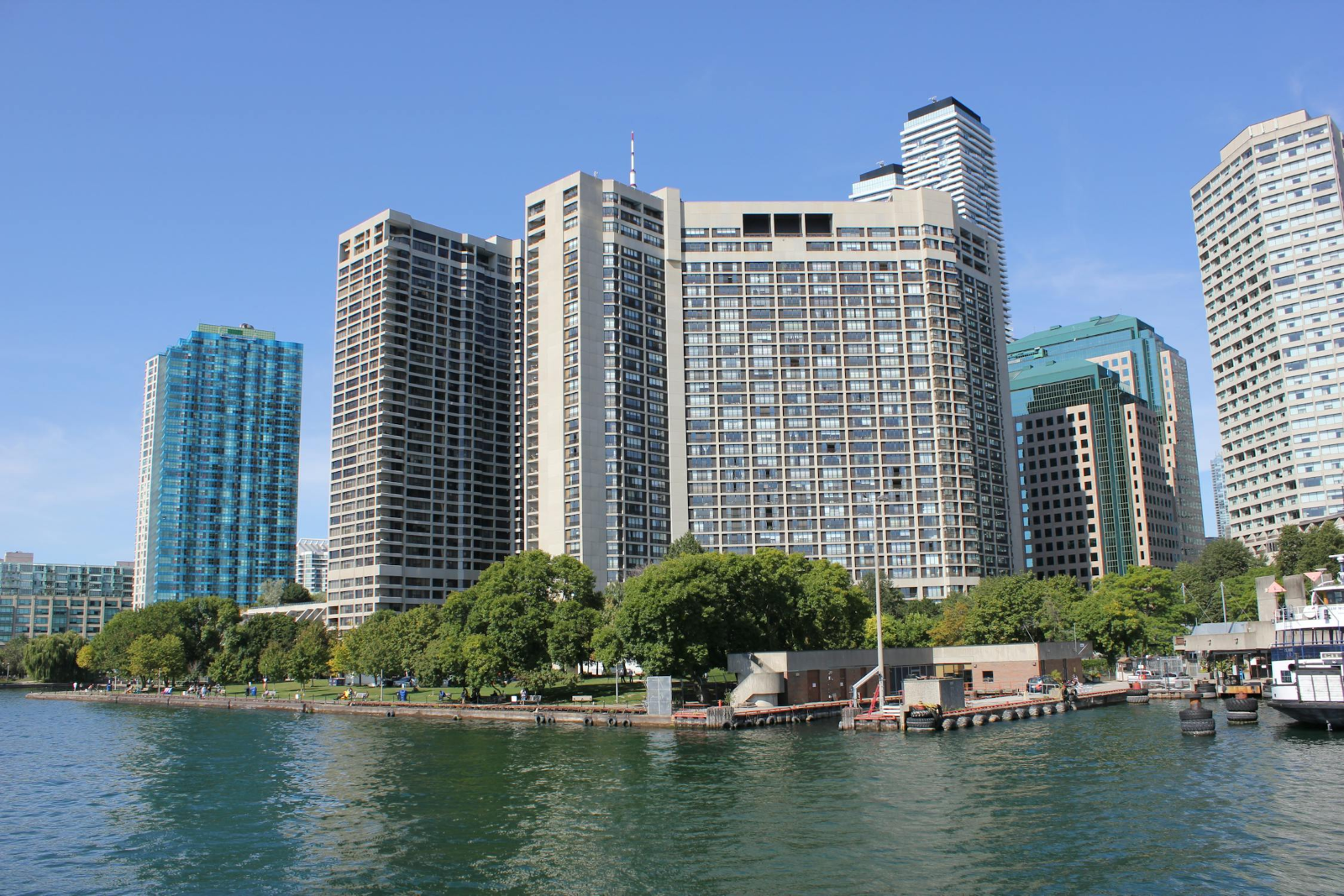Check out this guide on how to become a commercial mortgage broker in Canada. Explore licensing requirements, skills, and more

- What is a commercial mortgage broker?
- Do commercial mortgage brokers need to be licensed?
- How to get a commercial mortgage broker licence
- How to become a commercial mortgage broker in Ontario
- Essentials skills to have as a commercial mortgage broker
- Commercial real estate vs. residential real estate
- Why should you become a commercial mortgage broker?
For aspiring mortgage brokers, focusing on getting clients from the commercial sector can be a great move. Corporations and business owners tend to look for spaces to lease for commercial purposes or properties that they can purchase to build their headquarters.
These clients also hire the services of commercial mortgage brokers to help them secure the best property loan deals. They apply for mortgages as business entities and not as individual home buyers.
Want to give this career a try to see if it fits your personal and professional goals?
In this article, Canadian Mortgage Professional will cover how to become a commercial mortgage broker. We will talk about how it differs from the typical mortgage broker in the country. Do commercial mortgage brokers need to be licensed? What are some essential skills that are must-haves for commercial brokers? What is a good ROI for your clients' commercial real estate investment?
Keep reading for more.
What is a commercial mortgage broker?
A commercial mortgage broker’s job is not far from the usual task of a typical mortgage broker. They both serve as a bridge between clients and mortgage lenders. Helping clients throughout the mortgage process, from application to closing, is one of their main functions.
However, instead of the common residential property loans, commercial mortgage brokers look for suitable commercial real estate loans for their clients. For example, a client may hire a commercial mortgage broker to help them secure a loan for the purpose of building commercial properties. These can be:
- office buildings
- shopping malls
- industrial warehouses
- apartment complexes
Do commercial mortgage brokers need to be licensed?
It depends on the place. For most Canadian provinces, licensure is a requirement. For others like Québec, what you will need is a representative's certificate.
Working as a commercial mortgage broker without a licence (in a place where it is required) can result in varying degrees of penalties. This can include fines and legal action. You also risk losing your credibility and ruining your career. To avoid encountering any problems, be sure to comply with your province’s requirements.
How to get a commercial mortgage broker licence
While the requirements vary from one province to another, most of them have similar qualifications like:
- age limit
- citizenship
- educational requirements
We will briefly discuss each criterion below:
1. Age limit
You must be of a certain age to become licensed to work as a commercial mortgage broker. The age requirement may vary by location. However, the general rule is that you must be at least 18 years old.
2. Citizenship
You cannot work as a commercial mortgage broker in Canada if you are not a citizen. Most provinces even have stricter qualifications such as proof of residency. Once these criteria are satisfied, only then can you get a licence to legally work as a commercial mortgage broker.
3. Education requirements
There are several pre-licensing courses created by your province or city's agencies. You must complete all these courses to advance to the final step of licensing as a mortgage broker. Then, train to become knowledgeable on commercial properties and clients.
How to become a commercial mortgage broker in Ontario
Just like most provinces in Canada, you need to get a mortgage broker licence in Ontario before you can legally work as a commercial mortgage broker. The Financial Services Regulatory Authority of Ontario (FSRA) oversees the requirements and process of getting a licence for brokers in Ontario.
To satisfy the FSRA’s educational requirements, complete an approved mortgage agent education program for a mortgage agent level 1 licence. Afterwards, finish a similar education program for a mortgage agent level 2 licence or a private mortgage course approved by the FSRA.
You must also qualify for the following criteria to become eligible for licensure:
- must be 18 years old or older
- must be a resident of Canada
- must have a valid email address
- must be authorised by a mortgage brokerage to deal in mortgages
- must have an Ontario mailing address that can receive registered mail; this must not be a post office box
Essentials skills to have as a commercial mortgage broker
Once you become a commercial mortgage broker, the next step is to formulate strategies to become successful. Building a few essential skills might come in handy while you gain experience.
Here are six important skills to develop for commercial mortgage brokers in Canada:
- financial skills
- negotiation tactics
- interpersonal skills
- problem-solving techniques
- risk assessment strategies
Let us explore each of them below:
1. Financial skills
Commercial mortgage brokers should be financially savvy, especially when it comes to monetary figures associated with mortgage transactions. Analysing interest rates and Canada’s inflation rate is also an integral part of commercial mortgage brokerage. These rates form one of the foundations of the mortgage products you present to your clients.
To learn more about the evolution of mortgage rates in the market, you might want to visit the past rates for better comparison and analysis. Try looking at historical mortgage rates in Canada when you check out this guide.
2. Negotiation tactics
Commercial mortgage brokers must be able to negotiate mortgage terms and contract details, prioritising your clients’ interest. This includes negotiating for the lowest possible rates for your clients, as well as repayment schedules.
Having strong negotiation skills will lead to better deals for your clients. This way, your brand or business will slowly be recognised, leading to referrals or repeat clients.
3. Interpersonal skills
It is important to maintain strong relationships with clients, mortgage lenders, and other industry-related professionals. Relationships built on trust can improve your credibility. Developing your interpersonal skills is also necessary when forming a network of contacts.
You can also learn a lot from the top mortgage brokers in your area. Their advice and experience can help you become successful—seek them out if you can. Check out 75 of Canada’s leading mortgage brokers in our special report.
4. Problem-solving techniques
Commercial mortgage brokers must learn to identify and resolve problems that arise during mortgage transactions. Clients will trust and appreciate you if you are committed to solving certain issues that they cannot solve by themselves.
5. Risk assessment strategies
Lastly, formulating risk assessment strategies is a valuable skill to have as a commercial mortgage broker. Factors such as your clients’ credit history and the value of the property will help you assess the potential risks that may arise in the mortgage.
Commercial real estate vs. residential real estate
While residential real estate investments can be profitable for your clients, you might want to advise them on the advantages of commercial property investments such as:
Longer leases
With commercial real estate investments, leases are often longer, sometimes lasting several years. This stability means that your clients can count on consistent rental income over time. This can also reduce the risk of losing tenants frequently.
Higher rental rates
Another upside of commercial real estate investments is higher rental rates. Commercial properties tend to have higher rental rates compared to residential properties. This is because businesses typically pay more for the space they need to operate. Higher rental rates can lead to better returns for your clients, making commercial investments more appealing.
Lower vacancy rates
Commercial properties can also have lower vacancy rates. This means that there are fewer periods when the property is empty and not generating income. Businesses often prefer to stay in one location for longer, which helps keep occupancy rates high.

Analysts have reported that the commercial property market is continuing to recover and is heading toward a longer-term bull run. Such increase in demand for commercial property would likely be felt during the last half of the year.
What is a good ROI for your clients' commercial real estate investment?
It depends. There are several considerations, such as:
- the type of property
- the location of the property
- real estate market conditions
- the state of the Canadian economy
Your clients' personal investment goals are also a huge factor. Their objectives can determine whether their ROI is satisfactory or not.
As a rule, a good ROI for a commercial real estate investment is a number higher than the average annual ROI for the country. For instance, the average ROI for commercial real estate in Canada is 4 to 6%. If your clients’ ROI is higher than this, they can consider it as a profitable return.
A higher-than-average ROI does not automatically mean that the risks are lower, nor does it reflect the overall state of the real estate market.
As such, you need to be informed about the latest developments in the industry to help your clients choose the best commercial real estate investment for them. You can check out our market updates page to get the latest on commercial real estate and related sectors.
Why should you become a commercial mortgage broker?
A commercial mortgage broker enjoys all the benefits of this profession, just like a typical mortgage broker. As for the advantages, there is a greater opportunity to earn more due to the type of clientele that commercial mortgage brokers have.
While mortgage brokers who focus on residential mortgages deal with individual homebuyers, commercial mortgage brokers are more likely to work with larger clients. These can include global business firms and large corporations.
So, if you think that focusing on this niche market will work out better for your career goals, try using this guide as your starting point.
Did you find this guide on how to become a commercial mortgage broker in Canada helpful? Share your thoughts in the comments section below.



